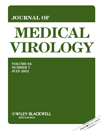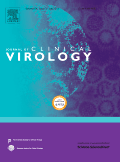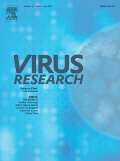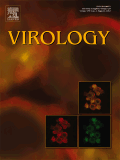
Food and Environmental Virology
Scope & Guideline
Connecting Virology with Food Science for a Healthier Tomorrow
Introduction
Aims and Scopes
- Surveillance and Epidemiology:
The journal emphasizes research on the surveillance of viral pathogens in food and environmental matrices, including wastewater and surface water, to track outbreaks and assess public health risks. - Molecular Virology and Pathogenesis:
Research that delves into the molecular characteristics of viruses, including genetic sequencing and phylogenetic analysis, is a core focus, helping to understand the mechanisms of virus transmission and infection. - Viral Detection and Quantification Techniques:
The journal showcases studies that develop and evaluate advanced methodologies for detecting and quantifying viruses in various matrices, including food, water, and environmental samples. - Virus Inactivation and Control Strategies:
Research on the effectiveness of disinfection methods and treatments to inactivate viruses in food and water sources is a significant area of interest, contributing to food safety and public health. - Emerging Viral Threats:
The journal covers emerging viral pathogens and their implications for food safety and environmental health, particularly in the context of changing ecosystems and global health challenges.
Trending and Emerging
- Wastewater-Based Epidemiology:
There is a significant increase in research utilizing wastewater analysis to monitor viral outbreaks, particularly SARS-CoV-2, showcasing its relevance in public health surveillance. - Advanced Molecular Techniques:
Emerging methodologies, such as nanopore sequencing and machine learning for virus characterization, are gaining traction, indicating a trend towards integrating technology into virology research. - Natural and Chemical Virus Inactivation Methods:
Research focused on the efficacy of natural compounds and innovative chemical treatments for virus inactivation in food and water is on the rise, reflecting a growing interest in sustainable and effective disinfection strategies. - Viral Persistence and Environmental Stability:
Studies assessing the persistence of viruses in environmental matrices, particularly under varying conditions, are becoming more prominent, highlighting the importance of understanding viral survival for risk assessment. - Interdisciplinary Approaches to Viral Research:
The journal is increasingly publishing interdisciplinary studies that combine virology with fields such as microbiology, ecology, and public health, reflecting a holistic approach to understanding viral threats.
Declining or Waning
- Traditional Foodborne Virus Studies:
There seems to be a decreasing emphasis on classical studies of well-established foodborne viruses, such as Hepatitis A and Rotavirus, as newer methodologies and emerging pathogens take precedence in research. - General Environmental Impact Studies:
Research that broadly assesses environmental impacts of viruses without specific focus on food safety or public health implications has been less frequent, indicating a shift towards more targeted studies. - Virus Detection in Non-Food Matrices:
The focus on detecting viruses in non-food environmental matrices, such as air samples or non-water environments, appears to be declining, with more emphasis being placed on food and water safety.
Similar Journals

Virology Journal
Exploring the intricate world of viruses and their hosts.Virology Journal, published by BMC, stands as a prominent open-access platform since 2004, dedicated to advancing the field of virology and infectious diseases. With its E-ISSN: 1743-422X, this journal is based in the United Kingdom and strives to disseminate high-quality research that enhances our understanding of viral pathogens and their interactions with hosts. Recognized with a Q1 classification in the category of Infectious Diseases and a Q2 in Virology for 2023, Virology Journal holds significant standing in the academic community, ranking #82/344 in Medicine - Infectious Diseases and #26/80 in Immunology and Microbiology - Virology. Its commitment to open access ensures that cutting-edge research is freely available to researchers, professionals, and students worldwide, fostering collaboration and innovation in the fight against viral diseases. The journal aims to publish original research articles, reviews, and commentaries that will stimulate discourse and spark new ideas within the virology community.

CURRENT HIV RESEARCH
Advancing the Frontiers of HIV KnowledgeCurrent HIV Research is a pivotal journal dedicated to the latest advancements in the field of HIV research, published by Bentham Science Publishers Ltd. With a commitment to disseminating high-quality research, this journal serves as a critical resource for researchers, healthcare professionals, and students interested in infectious diseases and virology. The journal has an ISSN of 1570-162X and an E-ISSN of 1873-4251, reflecting its commitment to contemporary digital scholarship. Given its publication history spanning from 2003 to 2024, the journal has continually provided insights and peer-reviewed articles that foster knowledge and innovation in HIV research. Although it currently holds a Q3 ranking in Infectious Diseases and a Q4 ranking in Virology, these rankings underscore its importance as an emerging platform for critical research dialogue. Despite not being an Open Access journal, 'Current HIV Research' ensures that cutting-edge studies reach relevant practitioners and contribute to ongoing discourse in the medical community. By fostering an informed approach to HIV and its implications, this journal is an invaluable asset to those committed to advancing their expertise in this crucial area of health science.

VIROLOGICA SINICA
Fostering Academic Excellence in Virology StudiesVIROLOGICA SINICA, published by KEAI PUBLISHING LTD, is a leading international journal dedicated to the field of virology. With an ISSN of 1674-0769 and E-ISSN of 1995-820X, this esteemed journal showcases cutting-edge research from 2006 to 2024, focusing on critical developments in Immunology, Infectious Diseases, Molecular Medicine, and Virology. As evidenced by its respectable positioning in the Q2 quartile of relevant categories and impressive Scopus rankings—such as Rank #20/80 in Virology—VIROLOGICA SINICA serves as an essential resource for researchers, professionals, and students aiming to deepen their understanding of viral pathogens and their impact on human health. While the journal does not currently offer open access, it remains an invaluable publication for those seeking to stay at the forefront of virology research. Its address is located at 16 Donghuangchenggen North St, Beijing, China, where it continues to foster academic excellence in the rapidly evolving landscape of virology.

JOURNAL OF MEDICAL VIROLOGY
Exploring Viral Frontiers: Unraveling the Complexities of Infectious Diseases.JOURNAL OF MEDICAL VIROLOGY is a prestigious academic publication dedicated to advancing the field of virology and infectious diseases. Published by WILEY, this journal has established itself as a cornerstone within the scientific community since its inception in 1977, and it will continue to provide cutting-edge research until 2024. With an impressive impact factor that places it in the Q1 quartile for both Infectious Diseases and Virology, the journal ranks 14 out of 344 in Medicine - Infectious Diseases and 6 out of 80 in Immunology and Microbiology - Virology according to Scopus metrics. Its focus encompasses a broad spectrum of topics, including viral pathogenesis, diagnostics, treatment strategies, and epidemiology, making it an essential resource for researchers, clinicians, and students alike. Although not an open-access journal, it provides valuable insights and accessible content for subscribers and libraries. The ongoing commitment to high-quality peer-reviewed articles makes JOURNAL OF MEDICAL VIROLOGY a vital platform for disseminating knowledge and fostering innovation in virology and related fields.

Viruses-Basel
Fostering Collaboration Through Cutting-Edge ResearchViruses-Basel, published by MDPI, is a leading interdisciplinary journal focused on the field of virology and infectious diseases, offering a platform for the rapid dissemination of high-quality research. Established in 2009, this open access journal has become an essential resource for researchers and health professionals, ensuring that critical findings are readily available to a global audience. With an impressive Q1 ranking in Infectious Diseases and a Q2 ranking in Virology as of 2023, the journal reflects its commitment to impactful research, validated by its notable positions within Scopus categories—ranked #84 out of 344 in Medicine: Infectious Diseases and #27 out of 80 in Immunology and Microbiology: Virology. The journal adheres to high standards of academic rigor, and by embracing an open access model, it promotes unrestricted access to scientific knowledge, fostering collaboration among researchers, professionals, and students alike. Situated in Basel, Switzerland, the journal serves as a cornerstone in the dissemination of research findings related to viral diseases and their implications on public health.

JOURNAL OF CLINICAL VIROLOGY
Advancing the Frontiers of Viral ResearchJournal of Clinical Virology, published by Elsevier, stands at the forefront of virology research, focusing on the clinical implications of viral diseases. With an impressive impact factor representative of its Q1 categorization in both Infectious Diseases and Virology, this journal is essential for researchers and healthcare professionals aiming to keep pace with evolving knowledge and treatments in virology. Since its inception in 1998, it has provided a vital platform for the dissemination of significant breakthroughs, now continuing through to 2024. The journal boasts competitive Scopus ranks, placing it in the 95th percentile for Infectious Diseases and the 91st percentile for Virology. Scholars can benefit from its selective Open Access options, promoting widespread access to cutting-edge research. With an ever-increasing demand for innovative solutions to viral infections, Journal of Clinical Virology remains dedicated to fostering advancements in the field, making it a key resource for anyone invested in virology and infectious disease management.

VIRUS RESEARCH
Unraveling the mysteries of viral interactions.VIRUS RESEARCH is a leading journal dedicated to the field of virology, published by Elsevier, and has been a cornerstone for researchers, professionals, and students since its inception in 1984. With an impressive impact factor, the journal is highly regarded, holding a Q2 category ranking in both Cancer Research and Infectious Diseases, as well as in Virology for 2023. Based in the Netherlands, it publishes high-quality, peer-reviewed articles that explore the intricate relationships between viruses and their hosts, novel therapeutic strategies, and advancements in virus biology. Researchers will find that it ranks 49th in Medicine - Infectious Diseases and 19th in Immunology and Microbiology - Virology according to Scopus, signifying its significant contribution and relevance in the academic world. VIRUS RESEARCH facilitates a platform for sharing groundbreaking discoveries, forming a vital part of the global scientific community, making it an essential read for those involved in the study of viral pathogens and their implications in medicine and biochemistry.

VIROLOGY
Illuminating the Impact of Viruses on HealthVirology, published by Academic Press Inc. Elsevier Science, is a prominent journal dedicated to advancing the knowledge and understanding of viral biology and pathogenesis since its inception in 1955. With a distinguished impact factor and recognized as a Q2 journal in the field of Virology for 2023, it ranks 38 out of 80 in the Scopus database for Immunology and Microbiology, placing it in the 53rd percentile among similar publications. This esteemed journal provides a platform for groundbreaking research, critical reviews, and comprehensive studies that contribute to our global understanding of viruses and their impact on health and disease. Although currently not an open-access journal, it remains accessible to a wide audience of researchers, professionals, and students who are keen to explore the latest advancements in virological research. The journal's scope encompasses a diverse range of topics, ensuring that it serves as an essential resource for anyone engaged in virology and related biomedical fields.

VIROLOGIE
Unraveling the mysteries of infectious diseases.VIROLOGIE is a prominent international journal dedicated to advancing the field of virology and infectious diseases, published by John Libbey Eurotext Ltd. Since its inception in 1997, this journal has provided a platform for researchers and professionals to disseminate their findings on various aspects of virology, including the pathogenesis, epidemiology, and treatment of viral infections. Despite its current ranking in Q4 for both Infectious Diseases and Virology categories, the journal remains a valuable resource for emerging research and novel insights. The ISSN for the journal is 1267-8694, and it is based in France. VIROLOGIE is committed to upholding rigorous academic standards and fosters an inclusive scholarly community, making it an essential read for those pursuing knowledge and advancements in the ever-evolving landscape of virology. While the journal does not currently offer open access options, it continues to contribute significantly to the global discourse on viral research through its diverse range of published studies.

Journal of Clinical Virology Plus
Connecting knowledge to enhance public health strategies.The Journal of Clinical Virology Plus, published by Elsevier, is an essential resource for researchers and professionals in the fields of virology and infectious diseases. Launched in 2021, this journal aims to bridge the gap between clinical research and application, fostering a deeper understanding of viral pathogenesis, diagnostics, and therapeutic strategies. With an ISSN of 2667-0380, this open-access journal brings cutting-edge findings to the global scientific community, facilitating the rapid dissemination of knowledge critical for advancing public health. Positioned in the Q3 category for both Infectious Diseases and Virology in 2023, its ranking reflects its growing influence and relevance in the academic landscape. The journal strives to support innovative research, collaborative studies, and comprehensive reviews that address contemporary challenges in clinical virology. As it converges through the years from 2021 to 2024, Journal of Clinical Virology Plus aims to be a central hub for vital discussions and breakthroughs in this dynamic field.